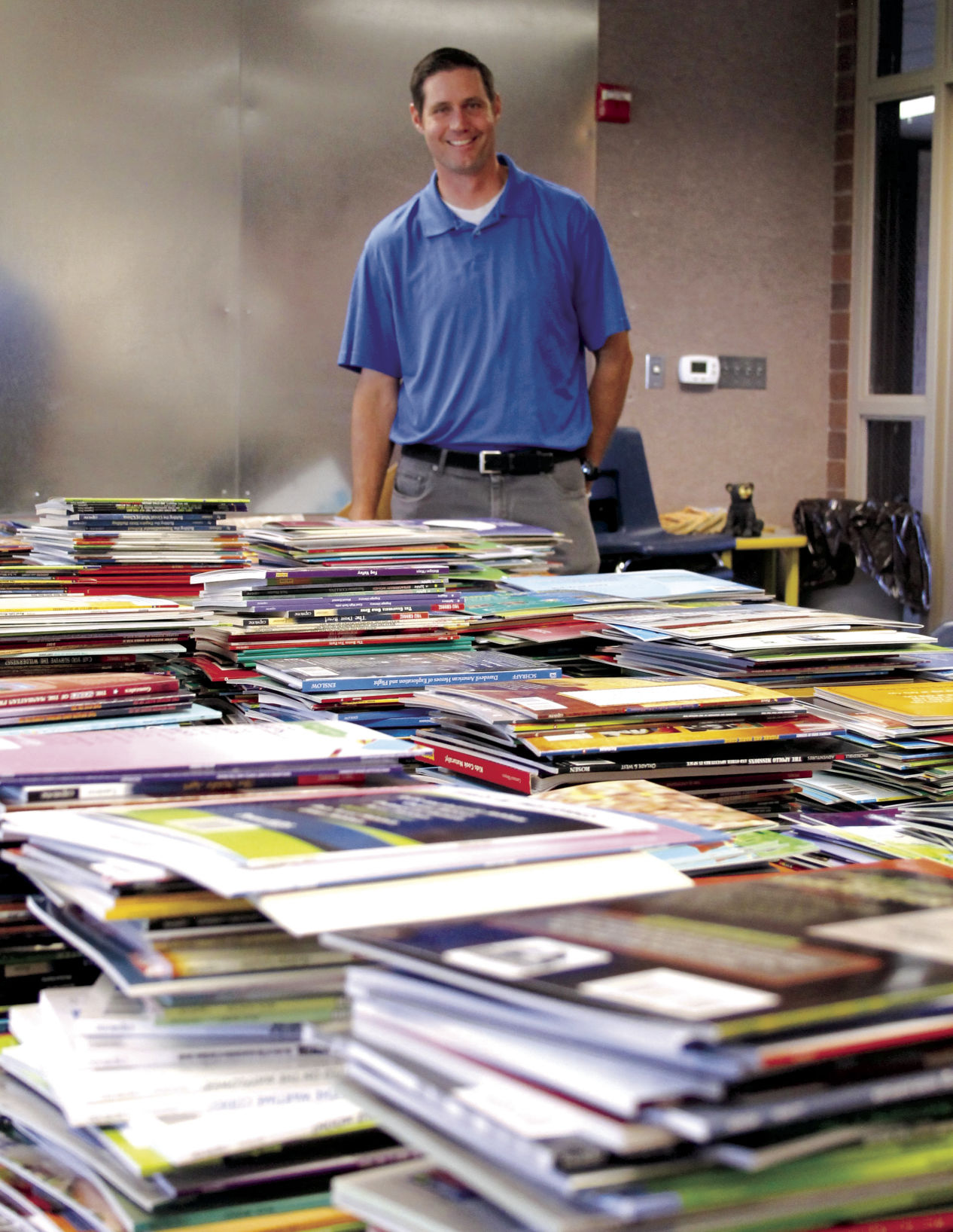One answer is to get lots of reading material and just let students read
Castle Heights Elementary has always had one of the largest student enrollments among the elementary schools in Carbon School District. This year is no exception.
“We are bursting at the seams,” said Chris Winfree, the principal of the school recently. “We have 499 students.”
It isn’t the most the school has ever had, but it is still a lot.
“Every classroom in the building is full,” he said. “We have the faculty room and one computer lab that is left without a class in it.”
He said that if needed they could do without the computer lab because the district has done so much by having students with their own devices to use in their rooms, but that he would rather not have to do that.
“The lab provides a place for the kids to go when they are doing special work, outside their classroom,” he said.
They have four kindergarten classes and four first grade classes in the school. They also have three fifth grade classes.
The school hired one new teacher this year, Ruth Moore, who is handling a first grade class. She taught music at Creekview Elementary for years before coming to Castle Heights.
Winfree said one of the big academic pushes this year at the school is the Reading Leveling program that the district is supporting. Last year the school began that same program and really pushed it. It proved to be successful.
“Here is what we are trying to help everyone to understand,” he explained. “We spend so much time teaching subjects to students at grade level. When students open their text books that is what the reading level is for those books. But when we look at our numbers, only 40 percent of our students are at their correct reading level for their age. That means the rest are below grade level so they are struggling to follow along. We teach them, we work on holes and gaps in their reading, but the reality is that they need more time reading at their level so they can stay up. But it is hard to do that when you are teaching a whole group of kids. The fastest way to help those students to get to their appropriate level is to just let them read huge amounts of material at their existing level and they will grow from there.”
He said there will be challenges because some students appear to be able to read at a higher level than they really can, and parents may think the school is providing materials that seem below their level.
“Some kids can read well in terms of the words coming out of their mouths, but they aren’t comprehending what they are reading,” said Winfree. “So we are going to put kids on their own independent level and let them read and read, and then progress them up the chain until they get to their grade level.”
He said that all the teachers have agreed to find 60 minutes per day so students can read in school to help them move toward grade level reading competency. Students who are below level will get 90 minutes per day.
The district has purchased thousands of books for the program and the students also have an on line program they can use to read from as well. Students will progress to higher levels based on teachers assessments of their reading ability.
“I truly believe we will see more progress this way than through anything else we have done,” he said. “This was proven last year when we did it as a trial with some kids because various students raised their reading levels three or four levels in a few months.”
He said the goal is to have all fifth graders reading at a fifth grade level when they leave Castle Heights to go to middle school.
Another thing that Winfree said that will not happen this year is homework.
“I have asked teachers not to send out homework,” he said. “I know that some parents will be concerned about that but I think we need to realize that educating students is our job here at the school. We just cannot expect parents to educate kids anymore. There are many parents who will help their kids with their homework, but there are a lot that will not. Then the kids bring it back and get a zero. That makes for a feeling of failure, so in a sense we are setting students up to fail. I have told teachers they can send home practice materials, but that it cannot be graded. We are the experts, we should be the ones educating students.”
As for behavior in the school this year, a program called PBIS Rewards is going to be utilized. Winfree says under that program everyone on the staff will have the ability to reward students when they are doing something good.

